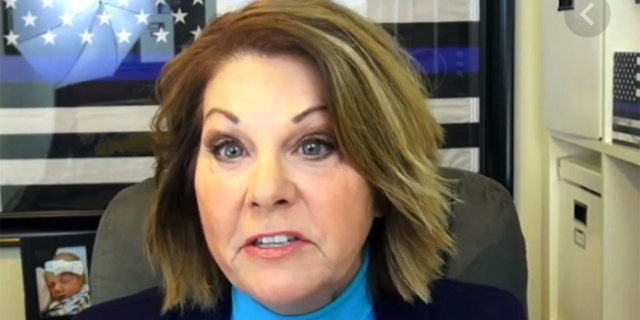Trey Gowdy honors fallen members of law enforcement
The ‘FOX News Primetime’ host pays tribute to murdered FBI agents in Florida, U.S. Capitol Police officer Brian Sicknick
In the wake of a riot at the U.S. Capitol, the suicides of two Washington police officers and the slayings of a pair of FBI agents attempting to serve a warrant in Florida, issues about the health and safety of American police officers have been getting some attention.
But National Police Association spokesperson Sgt. Betsy Brantner Smith, a retired 29-year police veteran, told Fox News that while the high-profile incidents highlighted a handful of cases, the risks are deeper and far more common.
“There’s a lot of law enforcement officers out there who are finding this sudden concern about our mental and physical wellbeing somewhat disingenuous, because it all centers around one incident – and that’s the Capitol riot,” she told Fox News Friday. “Even though we have been dealing with violent riots, there have been hundreds and hundreds of police officers injured. There have been police officers murdered in the post George Floyd riots that we dealt with all summer and fall and now into the winter.”

National Police Association spokesperson Sgt. Betsy Brantner Smith, a retired 29-year police veteran, told Fox News that while the high-profile incidents highlighted a handful of cases, the risks are deeper and far more common.
(FOX)
“Cops have all the same problems normal people do,” Smith said.
But those issues come with much greater exposure to trauma.
“A police officer on the job two years will see more human stress and strife and tragedy and trauma than most people see in a lifetime,” she added. “And it can be very difficult to deal with.”
DC POLICE NAME SECOND OFFICER SUICIDE AFTER CAPITOL RIOT
“We’d like our legislators, our leaders and our citizens to be concerned with all of us — not just three police officers, and not just one incident,” she said, referring to the two D.C.-area officers believed to have died by suicide after the Capitol riot as well as the Capitol police officer who died after sustaining injuries battle demonstrators.
They were Capitol Police Officer Howard Liebengood, Metropolitan Police Officer Jeffery Smith and Capitol Police Officer Brian Sicknick, respectively.
Due to the huge disparity in size and funding between different departments around the country, mental health and other services are not always available for officers who need them, she said.
“If I went to my chief and said I’m having some problems mentally because I was involved in a shooting, or I saw five dead babies in a week, depending on the agency and the resources that they have, that officer might get some help, that officer might get fired, that officer might get put on the desk and have their gun taken away,” she said.
CAPITOL POLICE OFFICER BRIAN SICKNICK LIES IN HONOR AT CAPITOL; BIDEN, OTHERS PAY RESPECTS
As police advocates work on solving those issues, Smith said that everyday Americans help to improve police morale in their own communities.
“Show that support,” she said. “Buy a cup of coffee for a cop that’s behind you in line at a coffee shop. Cops need to know, because we get hammered constantly in the press and in social media, that we’re bad, we’re evil, we’re racist. Now our ‘thin blue line’ American flag that we’ve had for decades is now under attack, and it’s supposedly a symbol of White supremacy. It’s ridiculous, and it’s disheartening.”
Even having your children send greeting cards or pizza to the local police station would be a welcome move, she said.
For police officers whose departments lack mental health and personnel resources, Smith recommended seeking out a trio of organizations aimed at helping cops and other first responders.
The first, of which she is a board member, is Safe Call Now — a 24/7 hotline for first responders founded by a former police officer.
CLICK HERE TO GET THE FOX NEWS APP
The others are That Peer Support Couple, a program run by a pair of cops who provide training and peer support for officers dealing with emotional trauma, and The Wounded Blue, a foundation for officers injured in the line of duty.
If you or a loved one is feeling distressed, call the National Suicide Prevention Lifeline. The crisis center provides free and confidential emotional support 24 hours a day, 7 days a week to civilians and veterans. Call the National Suicide Prevention Lifeline at 1-800-273-8255. Or text HOME to 741-741 (Crisis Text Line)
CLICK HERE for the warning signs and risk factors of suicide. Call 1-800-273-TALK for free and confidential emotional support.




Comments